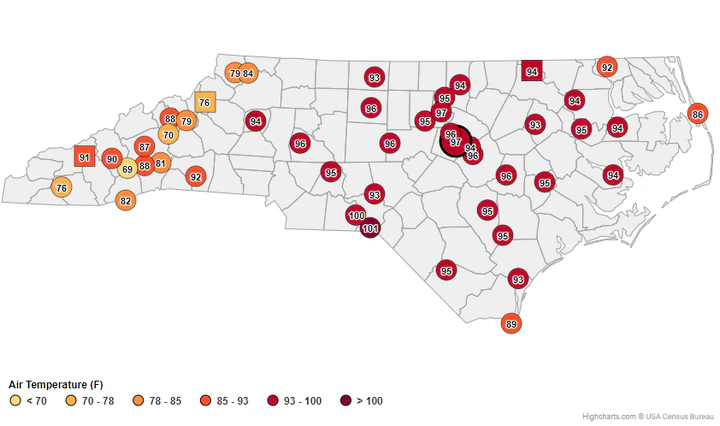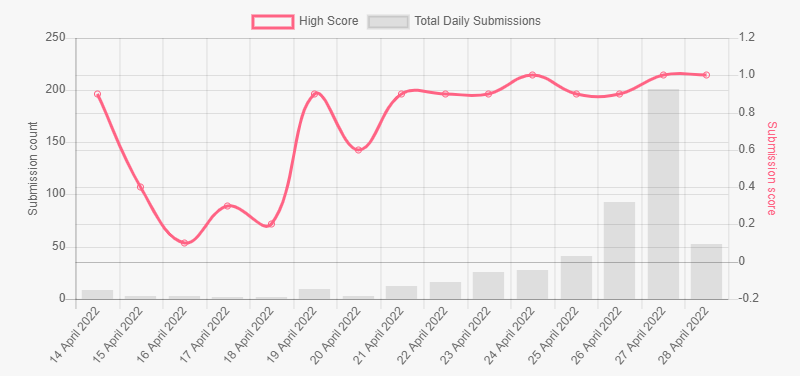ECONet: A Real-world Machine Learning Project

In my introductory Machine Learning (ML) course for undergraduate and graduate students, students complete a course project, where they have to design an ML pipeline to solve a realistic problem from start to finish. While many datasets provide an adequate challenge, my goal had always been to find a real-world partner to act as a client, allowing students to tackle an authentic problem with potential impact.
The ECONet Project
In 2022, I partnered with the NC State Climate Office (NCSCO), the primary scientific extension resource for weather and climate science for the state of North Carolina. The NCSCO had a large amount of weather sensor data from throughout the state, but the sensors occasionally malfunctioned (~3.5% of the time), providing faulty data. The office used a manual verification process to identify errors, which cost many hours of expert labor each year.
I worked with NCSCO to develop a comprehensive course project, focusing on automated anomaly detection in the ECOnet dataset. The project included:
- A prepared training and (held-out) test dataset that had previously been labeled by NCSCO experts, with 8M datapoints!
- Compiled documentation on the dataset and its features.
- A new lesson on error metrics for datasets with heavy class imbalance (e.g. PR-AUC).
- A CodaLab competition and online leaderboard, where students could compete to achieve the highest performance on the dataset.

Daily submissions and high scores for the ECOnet challenge.
Impact
The winning team achieved a PR-AUC of 0.96, with a recall of 0.95 and precision of 0.89 (where “error” was the positive class).
In practice this means that the NCSCO could skip manual verification of 99.6% of their datapoints (from ~8M to ~30k!), and still catch 95% of the real errors!
NCSCO was so impressed with the results that they hired two of the competitors to implement the model in the following semester, a project I helped to advise.!
All students left the class with a more complete understanding of the challenges of real-world datasets and constraints in ML, and an impressive project to put on their resumes.
A big thanks to my collaborators on this project at NCSCO, Sheila Saia and Sean Heuser.